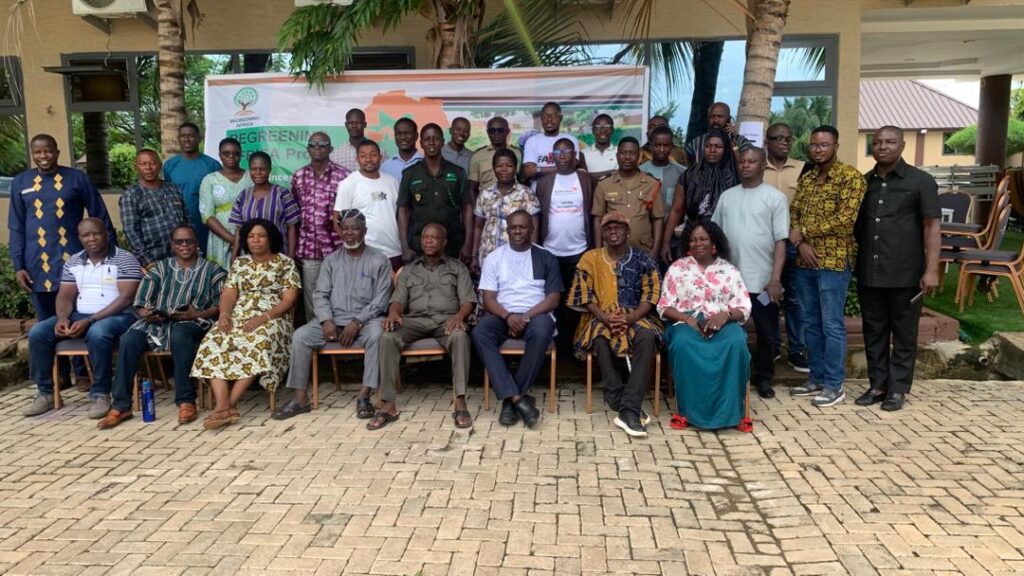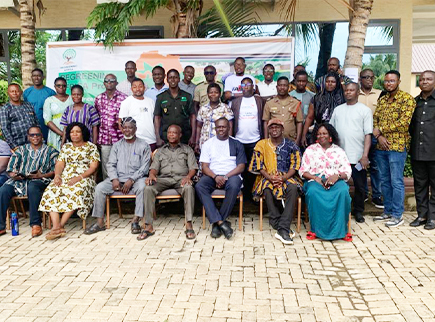World Vision Ghana, a Christian humanitarian organisation, has begun phase II of the Regreening Africa Project to scale up efforts to restore degraded landscapes and help communities to adapt to the invasive climate change impacts.
The Regreening Africa Project aims to improve livelihoods, food security and increased resilience to climate change of smallholder farmers, by restoring ecosystem services, particularly through agroforestry.
The new year project seeks to build on the successes of the first phase, which employed the approaches of the Farmer Managed Natural Regeneration (FMNR) and livelihood interventions to restore degraded landscapes and forests and improve food production of smallholder farmers.
The four-year project, which is being rolled out in five African countries is being implemented in Ghana by World Vision Ghana in collaboration with the Catholic Relief Services, with overall coordination from the Centre for International Forestry Research and World Agroforestry (CIFOR-ICRAF) and funding support from the European Union.
The four-year project is being rolled out in the Garu, Tempane, Binduri and Bawku West Districts in the Upper East Region as well as Mion and Yendi districts in the Northern Region.
The FMNR approach is a low-cost effective way of regreening and restoring degraded landscapes and forest reserves through pruning and management of existing tree shrubs and stumps to regenerate naturally without necessarily planting new ones.
Speaking at the inception meeting of the project with stakeholders held in Bolgatanga, Mr Richard Appoh, the Project Manager of the Regreening Africa Project, World Vision Ghana, said the project will consolidate the gains made the first phase the project.
During the first phase, a total of 50 hectares were put under restoration through the FMNR and tree planting approaches, with about 40,000 households introduced to the regreening practices while women groups were economically empowered through the Savings for Transformation (S4T) model.

“The effects of climate change are very visible in these areas that we have selected, and we need to empower these communities to become resilient and contribute to address the challenges of environmental degradation and climate change”, he said.
The Project Manager indicated that the current phase would work with various stakeholders and the beneficiary communities to restore and regreen many more hectares of degraded lands and forests to contribute to combat desertification which was fast approaching from the Sahel.
“In addition to the regreening practices, we are introducing livelihood interventions such as agro processing and beekeeping among others to reduce communities’ overdependence on the environment for livelihoods”, he added.
Mr Mark Aidoo, the Upper East Regional Deputy Regional Manager, Forestry Commission, expressed worry over the fast depletion of the forest reserves in the region as a result of human activities such as improper farming and galamsey (illegal mining) activities among others.
He said the Forestry Commission had been working to restore the degraded forest reserves through tree planting and other activities and commended the project for complementing their efforts to address the environmental challenges.
Alhaji Zakaria Fuseini, the Upper East Regional Director of the Department of Agriculture, said climate change had already shown its face on agriculture activities in the region and called for stakeholder support to ensure that the Regreening Africa Project succeeds and contributes to mitigate climate change impact.

